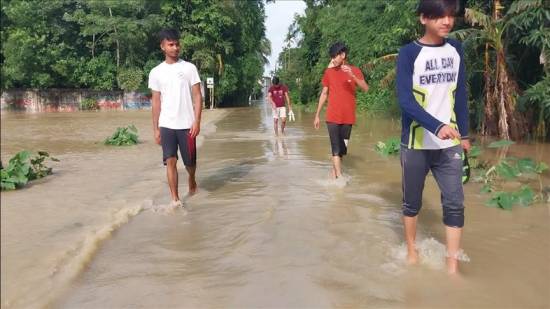Millions face challenges to restart lives after worst floods in Bangladesh
Life is gradually returning to normal in northeastern Bangladesh, which was devastated by the worst floods in a century.
However, the suffering of people is far from over as they have lost everything and face new challenges in resuming their lives.
Last week's flood in Sylhet district, known for tea cultivation, killed at least 42 people and stranded millions of others. Except for a few concrete structures, floods have washed away hundreds of thousands of people's homes.
"We have lost everything, even our clothes... what will we eat and wear when we return home?" Rahima Khatun, an elderly woman who has been taking refuge at a high school in Sylhet for over a week, told Anadolu Agency on Thursday.
Abdur Rahman, who owned a small grocery store, said the flood caused a significant loss. "We only had the flood a month ago... and now we have another ghostly flood."
After two years of pandemic-related restrictions, the latest situation has crippled them, he said.
On Thursday, army troops and local officials resumed relief operations in the flood-affected areas, providing packaged food and supplies to people.
"With our limited number of boats and other supplies, we are doing our best to reach the remotest and most afflicted people to provide relief goods to them," Maj. Hafiz, an army officer who has been working with relief teams in the Sylhet district for the last one week, told Anadolu Agency.
Though the flood situation in the majority of the district has improved, the situation in some other northern districts of the country has deteriorated in the last 24 hours due to the onrush of water from upstream India.
Meanwhile, after a six-day suspension, flight services at the district's Osmani International Airport have resumed. The flight cancellation affected a considerable number of people from Sylhet who live in the UK./aa


